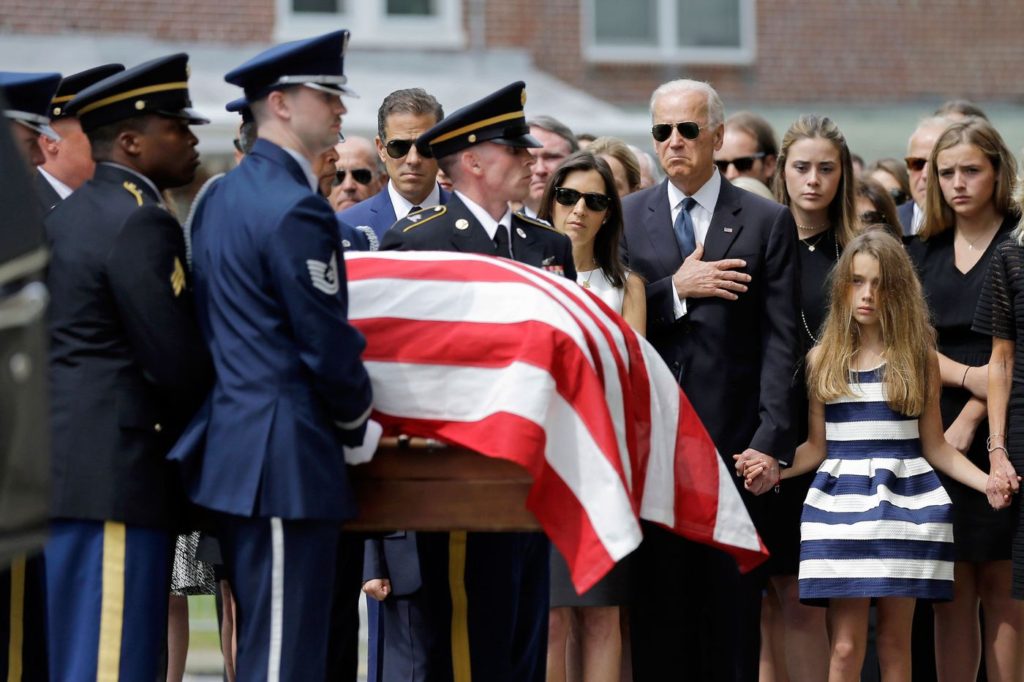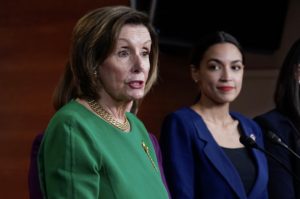
Even before the spread of coronavirus across the United States, 2020 was a year marked with death. Kobe Bryant, his daughter and seven others died on January 26. Though it took time for the details to emerge, Ahmaud Arbery was shot and killed on February 23. The meaninglessness of these deaths was shocking and tragic. To many, they seemed beyond plain human understanding. Then, on February 29, the U.S. had its first confirmed Covid death. No doubt most will remember watching with bated breath to see if their state had even one Covid case, let alone a death. From there, Covid, as any model could have told you, grew into a killer. The evidence was clear. It was only a question of when we would reach that gruesome number: 100,000.
On May 24, The New York Times published a front page consisting of only the names and brief descriptions of 1,000 of the then nearly 100,000 Covid-19 deaths. Four days later, the United States reached that most horrible milestone: 100,000 dead from Covid-19. The nation mourned while the White House told us to be thankful Trump had kept deaths to only 100,000.
Covid-19 was soon to be replaced in the news by… more death: namely, the death of George Floyd. Floyd’s death managed to activate the U.S. out of its Covid-induced stupor into a moment of revolutionary protesting, but the number of deaths showed no signs of stopping. Death tolls of 1,000 a day became the norm. In fact, they remain the norm.
The scariest thing about Covid is certainly its power to kill, but a close second is its power to make us apathetic. I can’t blame people for not dwelling on the massive death tolls we amass everyday, but it remains true that every single one of these deaths is that of a human. The desire to distance ourselves from the everyday horrors of pandemic life is only natural. Though it is also a horrible, dehumanizing consequence of the nation’s abject failure to contain the virus. Meanwhile, the most recent milestone, 200,000 deaths, was roundly overshadowed by… yet another death. This time, Ruth Bader Ginsburg, a beloved Supreme Court Justice and trailblazer for women’s rights, passed away at the age of 87. Much like the coronavirus death toll, Justice Ginsburg’s death was soon overshadowed by political posturing over her replacement. So, this is the state of play: we are numb to thousands of daily deaths, and our political events continue to be shaped and initiated by deaths.
So where can we look for hope? That question is, unfortunately, very difficult to answer. There is the accelerated search for a vaccine, but we will continue to have Covid deaths even after its discovery. And our troubles hardly end there. There is our deeply-rooted history of white supremacist violence that claimed, among many others, Ahmaud Aubery and George Floyd’s lives. In what’s left to hope for, we have an unlikely hero: Joe Biden.
Fintaan O’Toole, an Irish columnist writing in the January 16 edition of The New York Review of Books, called Biden “America’s most gothic figure.” He noted that most of Biden’s life and career has been framed first by the deaths of his first wife and daughter and later that of his son. Of course, O’Toole found none of this disqualifying. Grief is an important part of life, but O’Toole did fear that Biden’s view of division in the country as “just a matter of feeling” missed the point. The early incarnation of the Biden campaign did little to signal a deeper understanding of the nation’s problems. To Biden, all that was needed to save America was to reclaim its soul. Presumably the soul of the nation was alive and well during the Obama administration. Though better than the status quo, a simple return to the past would not solve our problems. Simply put, O’Toole saw Biden’s deep compulsion to feel and experience others’ pain as admirable but too apolitical for these polarized times. Biden feels so compelled to suffer with others that he loses sight of the perhaps crass but absolutely indispensable politics of power.
The destruction wrought by Covid has changed that and influenced Biden to reformat his campaign. Fear not, saving the soul of the nation remains a top Biden priority but where vapid, uninterested Democratic orthodoxy once stood is the new mantra of build back better. This is a Biden who, at least on the surface, seems far less afraid of offending Republican Senators and much more interested in wielding power. Suddenly Biden finds himself running on substantial expansions of the welfare state, institutional reform, and climate action that would have been unthinkable to the Biden who still explicitly styled himself as a Kennedy.
As much as Biden has adapted himself to the new moment, in one key area the moment met him. Death, long a fixture in Biden’s life, has now become a fixture in all of our lives. Perhaps no politician is better suited to lead the nation through our daily, emotionally immeasurable loss than one who has made the practice of grief his entire political career. Biden has spent the last 40 years off and on running for the presidency, so it is fitting that at last this is his time.
Before Covid, Biden was an acceptable generic Democratic presidential candidate. The current occupant of the White House has set the bar very low, so there is little fear that Biden could clear the hurdles Trump created. On other issues though, compelling arguments abounded that Warren was better for this or Harris for that, but during Covid, Biden is meeting the moment. Rarely has the nation experienced so much death in so little time though Biden has lived most of his life shrouded in loss. So, perhaps third time’s the charm, and America is finally ready for Joe Biden: the mourner-in-chief.



